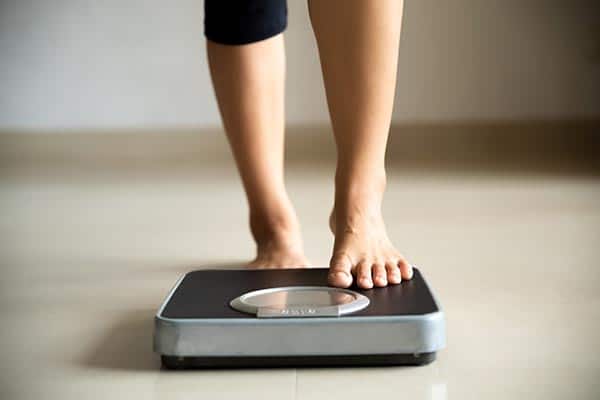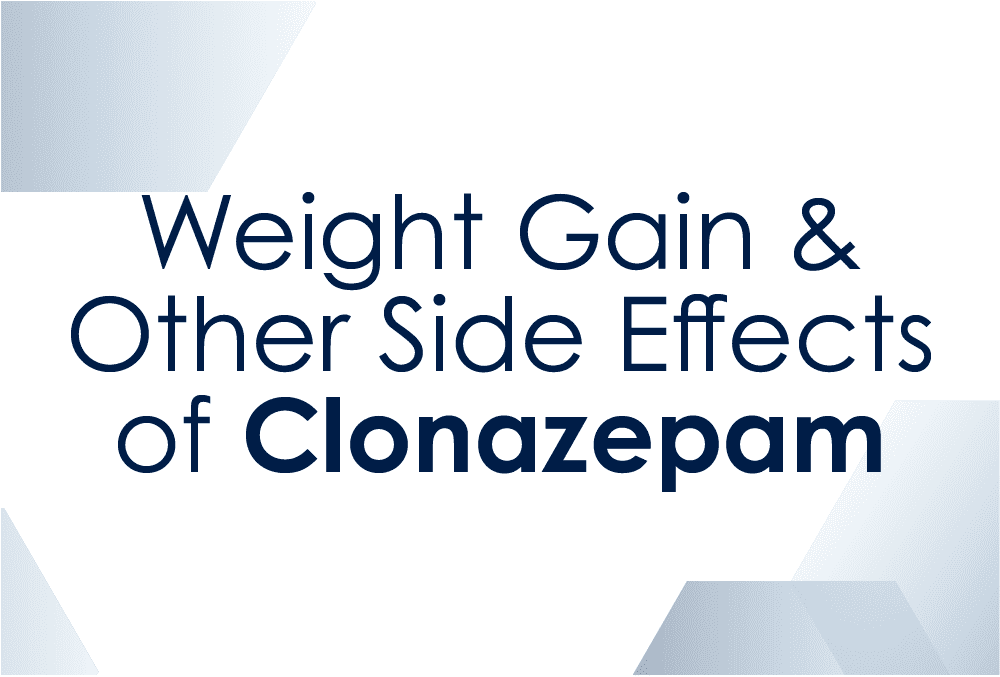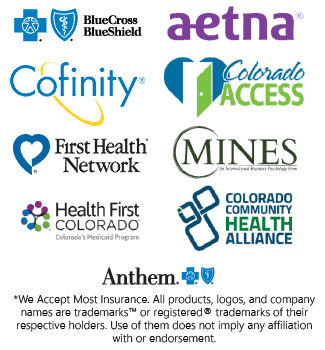Clonazepam & Weight Gain
Benzodiazepine Side Effects
Benzodiazepine Side Effects
Clonazepam is the generic name for the brand name benzodiazepine Klonopin, a prescription medication most commonly used for the treatment of moderate or severe anxiety disorders. More specifically, the medication is used to treat panic disorder with or without agoraphobia. In addition to anxiety, clonazepam is sometimes used for the treatment of sleep disorders like insomnia, seizure disorders and symptoms associated with alcohol withdrawal. When used as directed, clonazepam is safe and effective, and typically results in minimal side effects — if any at all. However, even when taken exactly as prescribed by a psychiatric or medical professional, taking this medication for an extended period of time can result in the development of an addictive disorder. According to the National Alliance on Mental Illness, “Benzodiazepines may produce emotional and/or physical dependence (addiction) even when used as recommended. Physical dependence may develop after 2 or more weeks of daily use. The risk of withdrawal reactions when stopping therapy with clonazepam is increased with prolonged use of the medication.”
If you have been taking a benzodiazepine medication like clonazepam and you have been taking a higher dose than instructed, you might be in the early stages of a physical dependence on the drug. If you have attempted to cut back on your dose or quit taking the medication entirely and found yourself unable to do so, professional help might be necessary.
At CuraWest we provide a safe and comfortable benzodiazepine detox experience to those who have been struggling with a clonazepam use disorder of any severity. The symptoms associated with clonazepam withdrawal can be severe, which is why medical detox always comes as a recommended first step on every journey of recovery. To learn more about clonazepam misuse and withdrawal or to begin your own personal journey of healing, contact us today.
Benzodiazepine Misuse & Dependence
When used as prescribed, benzodiazepines are safe to use and effective for the treatment of anxiety, insomnia or alcohol withdrawal. However, because this type of medication has a high potential to be habit-forming, it is generally only prescribed to be taken at the onset of a panic attack or consistently for two weeks or less. The American Academy of Family Physicians published an article with states, “Benzodiazepines are widely prescribed, with four of them—alprazolam (Xanax), clonazepam (Klonopin), diazepam (Valium) and lorazepam (Ativan)—listed among the top 100 most commonly prescribed medications. Benzodiazepines generally produce almost immediate effects, and thus may be prescribed for short-term, intermittent, ‘as-needed’ use. Because many of the anxiety disorders wax and wane over time, patients with these disorders often prefer benzodiazepines because these agents can be taken intermittently, when patients feel the need to take them, and most patients can use benzodiazepines judiciously.” It is important to note, however, that rates of benzodiazepine misuse and dependence have been on the rise over the course of the past several years — partially because of high prescription rates. According to an article published by the National Institute on Drug Abuse, in 2019 roughly 16 percent of all opioid overdose deaths also involved a benzodiazepine medication like clonazepam.
If you have developed a benzodiazepine use disorder, whether or not you were initially prescribed the medication for a legitimate reason, there is help available. At CuraWest we understand how difficult it can be to stop or moderate use on your own, and we have designed an individualized program of recovery geared towards helping our clients maintain continued success in sobriety.
We Are Here For You
Let Us Help You Heal
Our Drug & Alcohol detoxification experience is second to none.
Learn how we can help by speaking with one of our Treatment Advisors today.
Side Effects of Clonazepam
Taking any medication — whether you are taking it as prescribed or otherwise — can result in a range of short and long-term side effects. If you experience any severe side effects while taking clonazepam as prescribed, we recommend reaching out to your prescribing physician immediately. If you have been taking clonazepam other than as prescribed and you believe you might be struggling with a benzodiazepine use disorder, we suggest looking into a medical detox program. Because the symptoms associated with benzodiazepine withdrawal can be severe and potentially life-threatening when left untreated, a short stay in an inpatient detox center always comes recommended. While in detox a case manager will work directly with the clinical team and develop a personalized aftercare plan, which will include an immediate transition into a higher level of care.
- Physical Side Effects of Clonazepam – The additional physical side effects of clonazepam might include dizziness, drowsiness, increased salivation, frequent urination, blurred vision and joint pain. If the medication is taken as prescribed the physical side effects are typically mild and resolve on their own.
- Psychological Side Effects of Clonazepam – The psychological side effects of clonazepam might include decreased libido/sex drive, memory problems, cognitive issues, depressed mood, a lack of motivation or interest in things which were previously enjoyed, confusion and a lack of coordination.
Our Drug & Alcohol Detox Services Include
- Clonazepam & Weight Gain – One of the most common side effects associated with clonazepam is weight gain. Klonopin has been proven to slow down the metabolic process that converts food into energy, leading to more fat storage and subsequent weight gain. Klonopin might also increase appetite, which can lead to weight gain over time. If you have been struggling with a Klonopin use disorder it might take a little bit of time for your metabolism to regulate, but your body will start to function normally once sobriety has been maintained for a certain amount of time.

Is Clonazepam Addictive?
Clonazepam is one of the most habit-forming medications a person can take, which is why prescribing physicians generally recommend it is only taken at the onset of an anxiety attack. It is extremely important that a patient’s personal history with substance misuse and dependence is identified and considered before clonazepam is prescribed.
Signs & Symptoms of Clonazepam Addiction
How can you tell if you have been suffering from a diagnosable clonazepam disorder? There are several signs and symptoms to keep an eye out for, including:
- You consistently take a higher dose of clonazepam than directed.
- You take clonazepam even though you never obtained a written prescription.
- You have attempted to cut back on the amount of clonazepam you take, but you have been unable to do so on your own for any extended period of time.
- You spend a great deal of time obtaining, using and recovering from the effects of clonazepam.
- You have been neglecting personal responsibilities and pre-existing obligations, and you have a lack of interest in activities you previously enjoyed.
- You have started to experience personal consequences as a direct result of your clonazepam use, like decreased performance at work or school, financial hardship or strained interpersonal relationships.
- Developing a physical tolerance, meaning a higher dose is required in order for the desired effects to be achieved.
- Experiencing withdrawal symptoms when clonazepam use is stopped suddenly.
Ready To Begin Your Drug & Alcohol Detox?
We Offer A Safe & Effective Program
Don’t let Drug & Alcohol addiction control your life.
Call us today and let’s get you started on the path to a better you.
Medical Detox & Clonazepam Withdrawal
The symptoms most commonly associated with clonazepam withdrawal include:
- Increased tension and anxiety.
- Muscular and joint pain.
- Profuse sweating.
- Insomnia and other sleep disturbances.
- Body tremors/uncontrollable shaking.
- Nausea, vomiting and dry wretching.
- Loss of appetite.
- Depressed mood and suicidal ideation.
- In severe cases, seizures and coma.
Treatment Options for Benzodiazepine Addiction
If you have been struggling with a benzodiazepine use disorder of any type or severity, you might be wondering what steps you can take to receive the professional help you need to recover. What treatment options are available for benzodiazepine addiction, and which treatment option is right for you? Because the symptoms of benzodiazepine withdrawal can be particularly severe and dangerous, medical detox always comes as a recommended first step. In medical detox you will be treated by a team of licensed medical professionals as you undergo withdrawal. You will have access to a range of addiction services including addiction assessments, medication assisted treatment, case management services, relapse prevention, behavioral therapy and aftercare planning.
While in medical detox, the clinical team in our Denver drug rehab program will determine which level of care you would benefit from transitioning into — either residential inpatient treatment, partial hospitalization or intensive outpatient treatment. If you have been misusing benzodiazepines and other drugs and you have an underlying mental health concern, residential inpatient treatment is recommended. A less intensive level of care could be an ideal option for someone with a mild or moderate substance use disorder, no underlying issues, and personal obligations which cannot be easily stepped away from. To learn more about which treatment option is right for you, contact us today.
Begin Healing Now!
Have A Call With One Of Our Treatment Advisors
Don’t Suffer Any Longer
Begin Our Simple & Straightforward Admissions Process
CuraWest provides a licensed, individualized and integrated detox program to people of all ages who have been struggling with addictive disorders of all types and severities. We offer a personalized curriculum of clinical care, designed to help our clients make a smooth and seamless transition from medical detox into the next appropriate stage of their personal journey of addiction recovery. We understand how difficult it might seem to choose the best drug and alcohol detox in Colorado for your unique personal needs. Fortunately, we are available to help make the decision easier. The moment you contact us, either directly through our website or over the phone, you are put in touch with one of our experienced and compassionate Treatment Advisors. They ask a short series of questions, ultimately helping you determine which level of care is the most appropriate for your unique case. If we believe our program is a good fit we conduct a free, no obligation insurance benefit check and facilitate local travel to our Denver, Colorado detox and recovery center. Contact us today to begin.

Reviewed for accuracy by:
Jasmine Billups
LPC-S
Jasmine has worked in the mental health field for over 18 years. She earned her B.A. in Psychology with a Minor in Child and Family Relations from North Carolina Central University, and her M.A. in Mental Health Counseling from Argosy University. Jasmine is a Licensed Professional Counselor Supervisor and has specialized in addiction for over 10 years.























